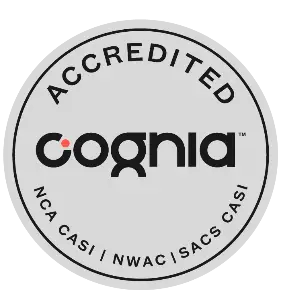To watch Corner Canyon High teacher Michelle Ritter lead her students in discussions and guide them through challenging assignments is to get a glimpse into some of the reasons why student achievement is on the rise in Canyons District. From bell to bell, the students are focused, engaged, actively learning and it’s clear they know they can turn to Ritter for help working through even the toughest scholastic tasks.
However, Ritter says, it’s not just the time spent in the classroom that has led to higher ACT scores for students in Corner Canyon and at other high schools in the District. While giving credit to the students’ hard work, she also is a firm believer in CSD’s across-the-district strong emphasis on teacher collaboration. “Why are we successful?” she said. “Because we work together. The teachers are always working together.”
“In my 21 years of teaching I have never felt the sense of community that I have felt in the past couple of years,” Ritter said, adding that her fellow teachers often send lesson-plan suggestions in texts and e-mails while away from the school. “In teaching, there is no place for egos. It’s not about me. It’s not about you. It’s about the kids.”
In a presentation to the Canyons Board of Education, Dr. Kathryn McCarrie, Assistant Superintendent for Curriculum, Instruction and Assessment, reported that Canyons teachers, indeed, are bringing out the best in students. Dr. McCarrie unveiled upward-trend test performance data in elementary, middle, and high schools “We are outperforming other students across the state,” she told the Board members on Tuesday, Oct. 21, 2014.
McCarrie told the Board that Canyons’ student achievement is indicative of how hard teachers are working. The data also demonstrate the effects of the Board’s academic initiatives, including the use of evidence-based research to guide decision-making; high academic standards and a strong curriculum; last year’s districtwide grade reconfiguration; Utah’s first college-ready diplomas; and middle school schedule changes.
In CSD, ACT achievement is rising in all tested subjects and outpacing state averages, with significant gains in English Language Arts, McCarrie told the Board. In addition, the numbers of Canyons high schools seniors earning unique-to-Canyons Advanced or Honors Diplomas is going up.
The diplomas require students to take more challenging courses and, for the Honors Diploma, achieve college-readiness benchmark scores on the ACT. In 2011, the first year CSD offered the diplomas, 60 percent of students earned one of the diplomas. Last year, 71 percent completed the requirements necessary to earn the honors.
McCarrie also told the Board that Canyons middle schools have shown tremendous gains on the Scholastic Reading Inventory (SRI). The percentage of students achieving at advanced levels has increased four fold, and the number of students scoring at below basic has dropped by more than 60 percent. Dr. McCarrie attributed the gains to ensuring eighth-graders are on track for college-readiness and cross-curricular teaching teams.
Sixth- and eighth-grade teachers at Butler Middle who were invited to speak to the Board at the meeting said teaming allows customization in core classes; use of student achievement data to help students; and feedback and collaboration among teachers. The teachers David Olsen, Marie Powers, Lisa McDonald, Melissa Engel, Ellen Anderson and Kendra Mallory also said it also gives students a sense of belonging.
“We have found, most importantly, that teaming helps the teachers but it really helps the students,” said Melissa Engel. “We are able to customize interventions among core classes for students. We are able to be consistent and precise” with all students.
In elementary schools, reading CBM test performance has gone from 56 percent proficiency in fall 2009 to 69 percent proficiency at the start of this school year, with a goal of 80 percent proficiency by year’s end. Math trends are similar with proficiency rising from 56 percent in fall 2010 to 75 percent now. Sandy Elementary teacher Bethany Smith said that students are making real-world connections and more fully understanding math.
“One thing I love about the math standards is the students are making meaning of their problems,” she said. When she first started teaching, Smith said, students were asked to complete algorithms. Now, students talk about how they arrived at the answer and why.
Board Vice President Steve Wrigley thanked Dr. McCarrie and the teachers for the presentation, and said teachers’ work toward academic improvements has represented a monumental task. He said that testing is needed to ensure that students are not left behind and that teachers have tools to help students achieve.




